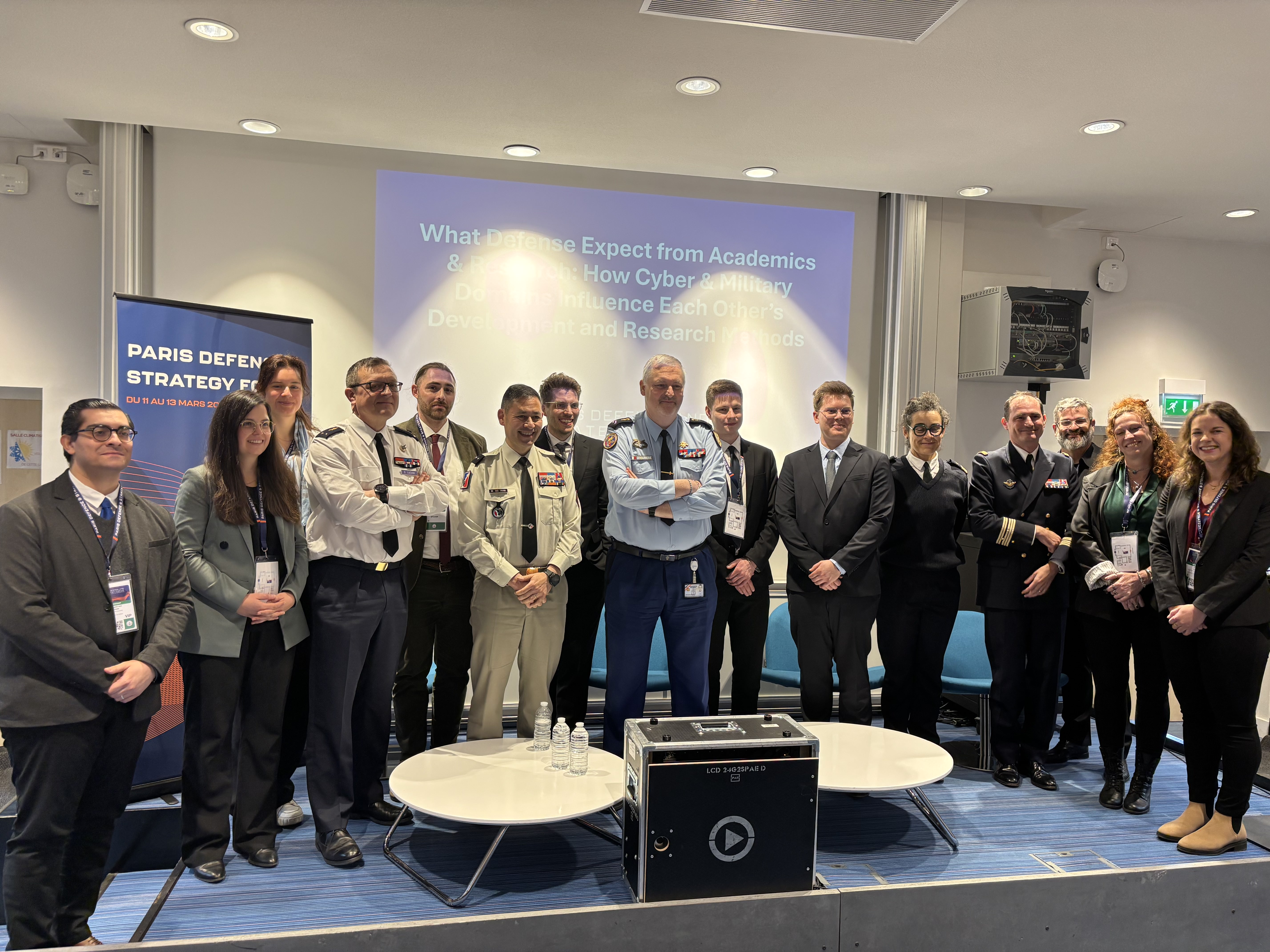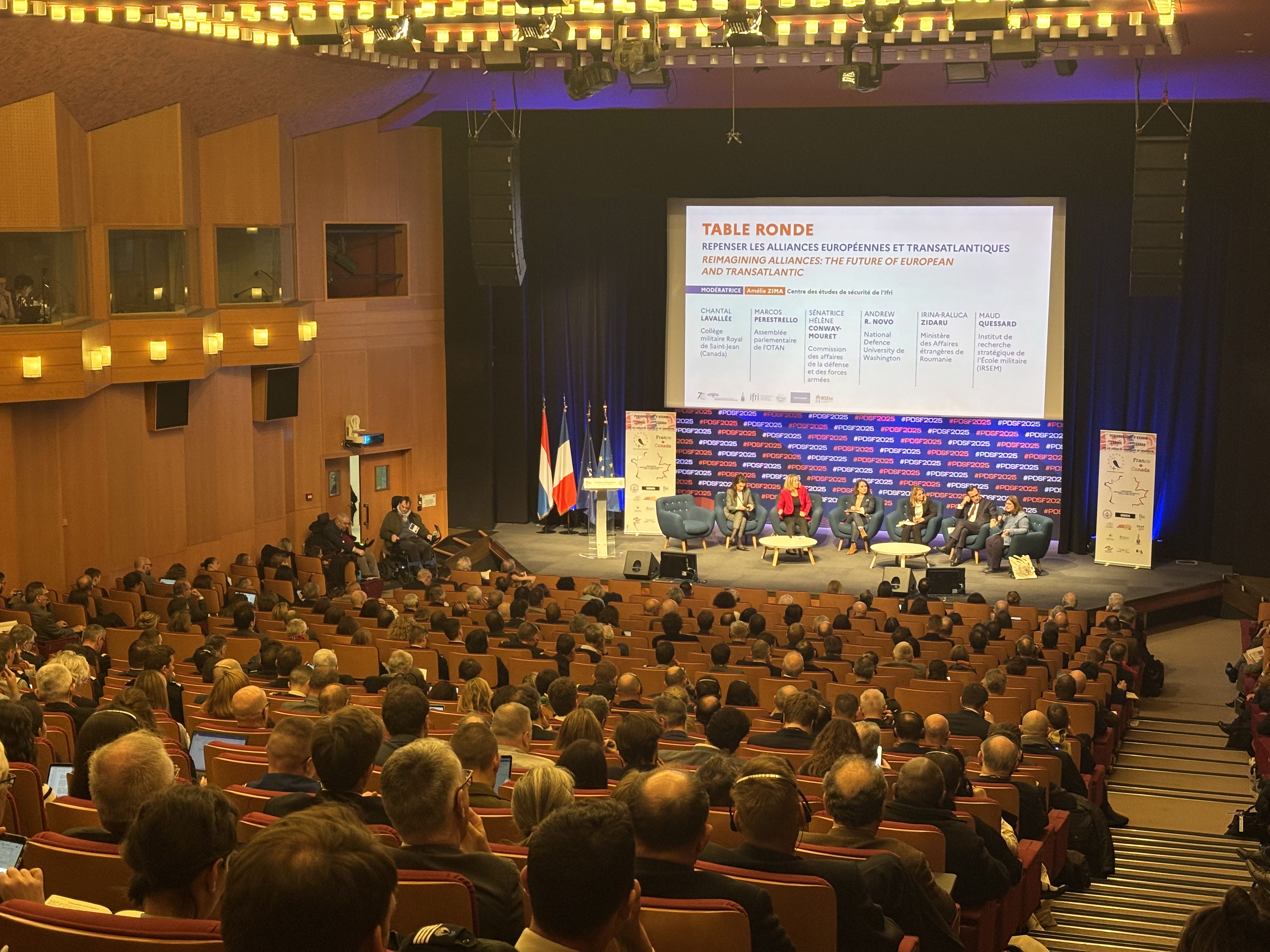Kevin Blasiak was invited to participate in the 2025 Paris Defence and Strategy Forum as part of its academic stream, contributing to high-level discussions on the future of international security.
The 2025 Paris Defence and Strategy Forum brought together global leaders in politics, defense, diplomacy, and academia to reflect on the shifting landscape of international security. With keynote contributions from French President Emmanuel Macron, German Defence Minister Boris Pistorius, U.S. National Security Council spokesperson John Kirby, and political scientist Joseph Nye, the forum made clear that navigating future threats will require both strategic foresight and societal resilience.
Attending by invitation as part of the forum’s academic stream, I had the opportunity to contribute to a growing platform for critical discourse between researchers and practitioners. This stream is designed to foster dialogue across sectors and to identify shared challenges that demand new forms of cooperation. Among these, the intersection of technology, security, and ethics featured prominently.
A recurring concern throughout the forum was how digital technologies are reshaping the nature of conflict, influence, and governance. Issues such as disinformation, cognitive warfare, and the deployment of AI in both strategic and domestic contexts highlighted the urgency of rethinking existing paradigms. These developments call for more than technical innovation; they require deep ethical engagement and cross-sector alignment.
From the perspective of responsible computing, the discussions reinforced a key insight. Future resilience is not only a matter of infrastructure or deterrence but of trust, values, and the public’s capacity to navigate complex digital environments. Academic frameworks that prioritize transparency, human-centered design, and ethical governance must find their place within strategic planning.
At present, such perspectives remain underrepresented in defense dialogues. Yet it is precisely at this intersection where academic research can contribute most. Whether through developing safeguards for AI systems, addressing the societal impact of online manipulation, or rethinking how institutions can foster digital trust, researchers have both the tools and responsibility to engage.
The forum underscored that academic voices are not just welcome but needed in shaping future security thinking. Responsible computing, with its emphasis on anticipatory design and societal well-being, can help bridge the gap between technological potential and ethical implementation. For this to happen, academic involvement must move beyond critique and toward sustained, constructive engagement with practitioners and policymakers.
The Paris Defence and Strategy Forum provided not only a space for reflection but a signal that such engagement is possible and increasingly necessary.


- March 15, 2025 (last updated)